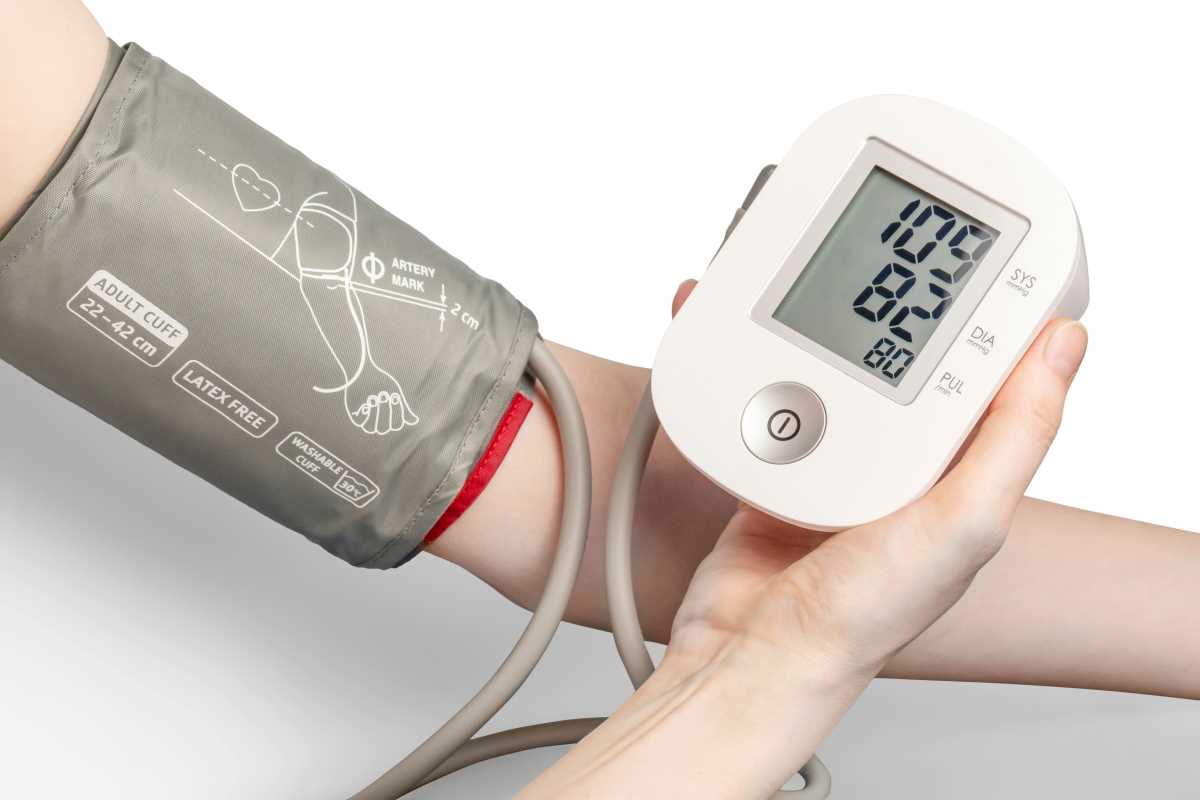If you've been taking cholesterol medication for a while, you might be wondering whether your current prescription is still the right fit. Maybe your numbers haven't budged as much as you'd hoped, or perhaps you're dealing with side effects that are making life less enjoyable. Whatever the case, you're not alone in questioning whether it's time for a change. The truth is, cholesterol management isn't a "set it and forget it" situation. Your body changes over time, your health circumstances evolve, and new medications continue to hit the market.
Understanding when and why you might need to switch medications can help you work more effectively with your healthcare provider to find the best approach for your unique situation. With that said, let's explore the key indicators that suggest it might be time to reassess your cholesterol medication, along with practical guidance on how to navigate this important health decision.
When Your Numbers Tell a Story
The most obvious sign that your cholesterol medication might need adjusting is when your numbers aren't where they should be. But here's the thing – it's not always as straightforward as you might think.
Persistent High Cholesterol Levels
If you've been consistently taking your medication as prescribed for three to six months and your cholesterol levels remain stubbornly high, that's a clear signal for discussion with your doctor. "High" depends on your individual risk factors. For some people with multiple risk factors, an LDL cholesterol of 100 mg/dL might still be too high, while others with lower risk might be fine at that level.
Your healthcare provider will look at your complete cardiovascular risk profile, including factors like your age, blood pressure, diabetes status, and family history. If you're not reaching your personalized cholesterol targets despite good medication adherence, it's definitely time to explore other options.
Plateauing Results
Sometimes your cholesterol improves initially but then hits a plateau. This could mean your current medication has reached its maximum effectiveness for you, or your body has adapted to it over time. Don't assume this means the medication isn't working – it might just mean you need a different approach or combination of treatments.
Side Effects That Impact Your Quality of Life
All medications come with potential side effects, but that doesn't mean you have to live with ones that significantly impact your daily life. When it comes to cholesterol medications, several side effects might prompt a change in treatment.
Muscle-Related Issues
Muscle pain, weakness, or cramping are among the most commonly reported side effects of statins. While these symptoms affect only a small percentage of people taking statins, they can be quite bothersome when they occur. If you're experiencing persistent muscle problems that interfere with your daily activities or exercise routine, discuss this with your healthcare provider.
The good news is that muscle-related side effects often resolve when switching to a different statin or adjusting the dose. Some people also find relief by taking breaks from the medication or trying alternative dosing schedules.
Digestive Problems
Nausea, stomach upset, or changes in bowel habits can make cholesterol medication feel like more trouble than it's worth. These digestive issues are more common with certain types of cholesterol medications, and switching to a different class of drugs often provides relief.
Cognitive Concerns
Some people report memory issues or mental fogginess while taking cholesterol medications. While research shows that statins don't actually cause dementia or significant cognitive decline, if you're experiencing these symptoms, it's worth discussing with your doctor whether they might be medication-related.
Changes in Your Health Status
Life doesn't stand still, and neither does your health. Several changes in your overall health status might necessitate adjusting your cholesterol medication approach.
New Medical Conditions
If you develop diabetes, kidney disease, liver problems, or other health conditions, your cholesterol medication might need adjustment. Some medications that were previously suitable might become inappropriate, while others might become more beneficial.
For instance, if you develop diabetes, your cardiovascular risk increases significantly, which might mean you need more aggressive cholesterol treatment. Conversely, if you develop liver or kidney problems, certain medications might need to be avoided or used with increased monitoring.
Medication Interactions
Starting new medications for other health conditions can sometimes create interactions with your cholesterol medication. This is particularly important if you're taking medications for heart rhythm problems, certain antibiotics, or immune system suppressants.
Age-Related Considerations
As you age, your body processes medications differently, and your risk-benefit calculations change. What made sense for your cholesterol management in your 40s might need reassessment in your 60s or beyond. Additionally, concerns about medication interactions often increase with age as people typically take more medications.
Understanding Your Medication Options
To have an informed discussion about potentially changing your cholesterol medication, it helps to understand the different types available and how they work.
Statins: The First-Line Treatment
Statins remain the go-to choice for most people because they're effective, well-studied, and generally well-tolerated. They work by blocking an enzyme your liver uses to make cholesterol. Different statins have varying potencies and side effect profiles, so if one doesn't work well for you, another might be perfect.
Popular statins include atorvastatin (Lipitor), simvastatin (Zocor), and rosuvastatin (Crestor). Each has slightly different characteristics in terms of how long it stays in your system and how it's processed by your body.
PCSK9 Inhibitors: The Heavy Hitters
These newer medications are incredibly effective at lowering LDL cholesterol – often by 50-60%. They're typically reserved for people with very high cholesterol levels or those who can't tolerate statins. The main downsides are that they're expensive and require injections every two weeks or monthly.
PCSK9 inhibitors include evolocumab (Repatha) and alirocumab (Praluent). They work by helping your liver remove more cholesterol from your blood.
Bile Acid Sequestrants: The Cholesterol Trappers
These medications work in your intestines to prevent cholesterol absorption. They can be particularly useful for people who can't take statins or need additional cholesterol-lowering beyond what statins provide. However, they can cause digestive side effects and may interfere with the absorption of other medications.
Ezetimibe: The Absorption Blocker
This medication prevents your intestines from absorbing cholesterol from food. It's often used in combination with statins for people who need additional cholesterol lowering. It's generally well-tolerated and can be a good option for people who experience side effects with other medications.
Newer Options on the Horizon
The cholesterol medication landscape continues to evolve, with new treatments being developed that work through different mechanisms. Some of these might become options for people who don't respond well to current treatments.
Preparing for the Conversation with Your Healthcare Provider
Having a productive discussion about potentially changing your cholesterol medication requires some preparation. Here's how to make the most of your appointment.
Gather Your Information
Before your appointment, collect your recent cholesterol test results, note any side effects you've experienced, and make a list of any other medications or supplements you're taking. If you've been tracking symptoms, bring those notes along.
Be Specific About Your Concerns
Instead of saying "I don't feel good on this medication," be specific: "I've been experiencing muscle aches in my legs three times a week that interfere with my evening walks." This specificity helps your healthcare provider understand exactly what's happening and make appropriate recommendations.
Ask the Right Questions
Come prepared with questions that will help you understand your options:
- What are my current cholesterol levels and targets?
- Are there alternative medications that might work better for me?
- What are the benefits and risks of switching medications?
- How long should we try a new medication before evaluating its effectiveness?
- Are there lifestyle changes that might reduce my need for medication?
Discuss Your Goals and Preferences
Be honest about your lifestyle and preferences. If you travel frequently and worry about forgetting daily medications, mention this. If cost is a concern, bring it up. If you prefer to avoid injections, say so. Your healthcare provider can only help you find the best solution if they understand your complete situation.
Consider Timing
Some medication changes are better timed than others. If you're planning major travel, starting a new job, or dealing with other significant life changes, you might want to delay switching medications unless it's urgent. Conversely, if you're settling into a more stable routine, it might be an ideal time to try something new.
Disclaimer: The content provided on SuperHealthyTips is for informational and educational purposes only. This information is not intended to be a substitute for professional medical advice, diagnosis, or treatment.
 (Image via
(Image via





